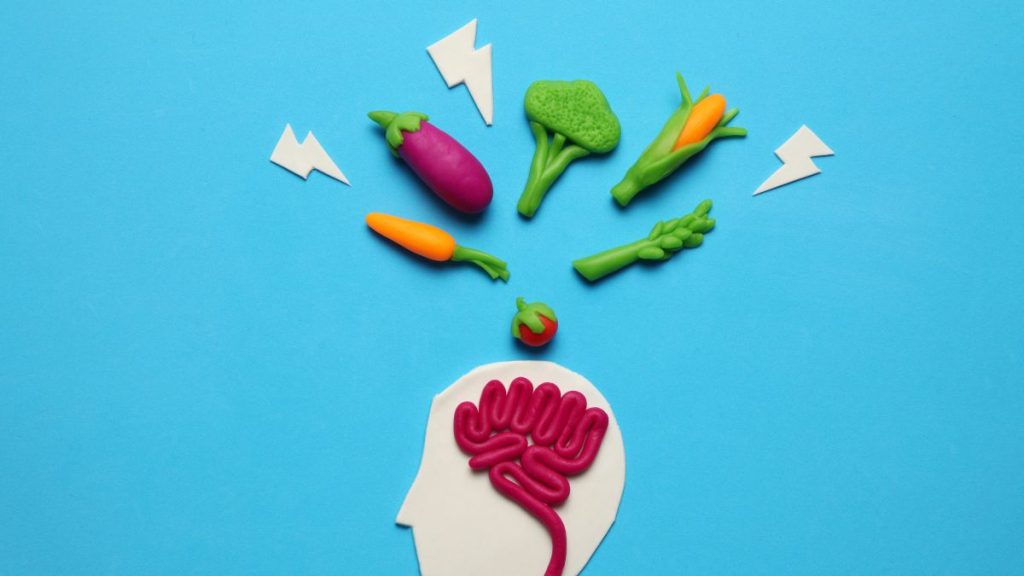Staying focused all day, whether it’s at school, work, or during an exam, is all about giving your brain a steady supply of energy. Your brain runs on glucose, a simple sugar that’s essential for clear thinking, concentration, and tackling difficult tasks – so if you want to perform at your best (and get better grades) then you need to make sure you’re eating the right food to keep it powered on.
In his book Thinking, Fast and Slow, Daniel Kahneman talks about how glucose plays a crucial role in cognitive processing, with research showing that mental effort depletes glucose levels. In their study, they found that students who were given glucose could continue performing simple mathematical equations long after a control group without the glucose could.
What is glucose?
Glucose is a type of sugar that your body uses as its main source of energy. It’s found in many foods, not just the sweet treats we often think of like lollies or candy. When you eat carbohydrates—whether they’re in bread, pasta, fruits, or vegetables — your body breaks them down into glucose, which then enters your bloodstream. From there, glucose is delivered to your cells, including brain cells, to be used for energy.
While glucose is technically a sugar, it’s important to understand that the best sources of glucose come from complex carbohydrates, like whole grains, fruits, and vegetables, rather than processed sweets. These complex carbs provide a slow and steady release of glucose, helping you maintain consistent energy levels, as opposed to the rapid spike and crash that comes from consuming sugary snacks.
So, when we talk about “glucose for energy,” we’re not just talking about sugar from lollies and junk food – we’re talking about the healthy carbs your body can use effectively to keep your brain running at its best. The trick isn’t just eating sugary snacks, but managing your diet to provide a constant source of glucose.
Let’s look at two scenarios: lasting a long day full of activities and preparing for an important exam.
Scenario 1: A full day of school plus work/training/study/social life
A long school day followed by work, training, or study in the afternoon requires careful planning so you don’t run out of energy before you get to the end of the day. Here’s how you can keep your glucose levels steady and avoid the dreaded energy crash.
Morning fuel
A combination of complex carbs, healthy fats, and protein will help you start the day strong. Try a wholegrain cereal with milk and some sliced banana, or wholegrain toast with peanut butter. Try to avoid sugary cereals – they can cause a glucose spike followed by a crash, making you feel sluggish by mid-morning.
Mid-morning boost
Around mid-morning, have a small snack to maintain your energy. A banana with a handful of nuts or an apple with cheese slices works well. This combination balances natural sugars with some protein and fat to keep energy levels steady.
Lunchtime recharge
To power through the afternoon, your lunch should include complex carbohydrates, lean protein, and veggies. A good option might be a wholegrain sandwich with chicken, salad, and cheese, or a pasta salad with lots of veggies. This provides a slower release of glucose, keeping you fuelled until your next snack.
Afternoon pick-me-up
By mid-afternoon, you might notice your energy dip. This is a good time for a snack that includes a mix of carbs and protein. Crackers with cheese or a granola bar can give you that needed boost while keeping blood sugar stable.
Evening meal
If you have training or work in the afternoon and want to avoid feeling wiped out, dinner should still include complex carbs and protein but focus on lighter options to aid recovery. Think a wrap with grilled chicken and salad, or spaghetti with a simple tomato sauce and some lean meat.
Timing tips
Space out your meals and snacks by 2-4 hours to keep your glucose levels stable throughout the day. Dehydration can also make you feel tired, so make sure you’re staying hydrated too. Water is best, but diluted fruit juice can help as well.
Scenario 2: Exam days
Exam days need extra planning, especially as you often can’t bring snacks into the exam room unless you have a medical reason. The goal is to keep your energy balanced so you can focus without feeling distracted or tired.
Pre-exam breakfast
Eating a good breakfast is key to starting the exam day right. Wholegrain toast with peanut butter and sliced banana, or a breakfast smoothie with yoghurt, oats, and berries are great choices. They provide complex carbs, healthy fats, and protein, all of which help release energy slowly over the morning.
Just before the exam
If there’s time before your exam, about 30 minutes before you start, have a small, easily digestible snack like a piece of fruit or a granola bar. It gives a small glucose boost without causing a sugar rush.
Hydration during the exam
You probably already hear this a lot, but it’s important to stay hydrated. Water is the best option, as dehydration can impact your focus. Make sure you’ve drank enough before the exam starts, and if allowed, keep a water bottle with you.
Post-exam snack
Once the exam is over, your body and brain will need to recharge. A smoothie made with fruit, yoghurt, and a small handful of oats can help replenish your energy without overloading your system with sugar.
The energy drink trap
It might be tempting to rely on energy drinks or caffeine tablets to stay alert, but they come with drawbacks. Energy drinks often contain a lot of sugar, which can lead to a rapid spike and crash in glucose levels, leaving you feeling worse in the long run. The high caffeine content can also cause jitters, anxiety, and even impact sleep, which ultimately harms your ability to focus and retain information.
So instead of quick fixes, aim for balanced, steady energy from nutritious foods and proper hydration to keep your brain functioning at its best.
Are you eating the right foods for your brain?
Managing your glucose levels throughout the day comes down to eating a balanced mix of complex carbs, proteins, and healthy fats at regular intervals. This helps you stay energised without the spikes and crashes that can make it hard to concentrate. On exam days, a well-thought-out breakfast and some simple snack food can give your brain the steady power it needs to think clearly, even under pressure.
Want more health and wellbeing tips tailored for students? You can read more on our website here.


